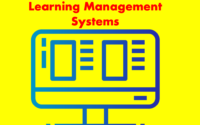
Enjoyment and Not Competence Predicts Academic Persistence for Distance Education Students
Dropout rates of distance education students is a serious problem for many distance education institutions as well as their students. A psychological factor that is related to dropout is the academic persistence of students, or their intent to finish their degrees. One factor that could predict academic persistence, which is often used to identify and […]
















